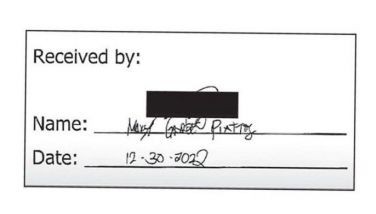‘Pressure from local execs to force senators to agree to Cha-cha’
August 1, 2005 | 12:00am
Local officials would force senators to agree on Charter amendments or face risk of isolating itself from the people, Malacañang officials asserted yesterday.
Executive Secretary Eduardo Ermita pointed out the senators, though elected at large, are still heavily dependent on local leaders to gain votes for re-election.
"They (senators) are not oblivious to the clamor of local officials," he said.
Ermita noted a large number of local officials nationwide openly supported the call for rewriting the Constitution to pave the way for a federal system of government and give more emphasis on local autonomy and relative freedom from the national government.
During her State of the Nation Address (SONA) last July 25, President Arroyo openly called for amending the Constitution to overhaul what she described as a dysfunctional political system.
But Senate President Franklin Drilon and a number of senators expressed their opposition against moves to amend the Constitution, claiming such moves will not even pass muster in the Senate.
Press Secretary Ignacio Bunye said the debate will not be in the halls of the Senate but among the people.
Bunye said the President would "bring the debate (on Charter change) to the people."
Cagayan de Oro Rep. Constantino Jaraula, chairman of the House committee on constitutional amendments, said the Senate risks isolating itself from the people if it would continue opposing Charter change.
Jaraula said there is not only an overwhelming clamor from the people to amend the Constitution with local officials spearheading Charter change moves in favor of the parliamentary-federal system of government.
Jaraula disclosed the Senate is being flooded with resolutions from local officials, from governors down to the barangay captains, pushing for Charter change.
He said the local governments saw how their voices were being ignored by politicians from "Imperial Manila," particularly during the height of the political crisis last month.
Bunye also pointed out the advantages of a parliamentary system of government.
He said decisions and lawmaking would be much faster and expeditious for speedy implementation of urgent measures.
Under the present political system where there are two legislative assemblies, it is highly vulnerable to gridlock.
Bunye claimed the Philippines is the only country in Asia still using the presidential form of government while Malaysia and other Asian neighbors have shifted to parliamentary system.
If the Philippines and its leaders do not do something about the present political system, Bunye warned Filipinos would find themselves being left farther behind in terms of economic progress.
"The advantage of the parliamentary system of government allows one body to assume the task of both the executive and legislative branches of government thus decision-making is quicker, legislating laws faster and implementing legislation and laws are done more effectively," he said.
Bunye emphasized the parliamentary system is also more politically stable as a simple vote of no-confidence is enough to remove an ineffective leader instead of the people going through a politically nerve-wracking "people power" revolt or impeachment to oust a fixed-term president.
Bunye likewise announced Mrs. Arroyo has designated two key Cabinet members to mobilize support for Charter change.
"The President is also planning the tap the services of two Cabinet members to directly assist in the work of explaining the proposed Charter change to various stakeholders: (Interior) Secretary Angelo Reyes, because of his work with local governments and (Defense) Secretary (Avelino) Nonong Cruz because of his legal background," Bunye said.
The two Cabinet officials are also tasked to assist in drafting Malacañang’s proposed amendments to the Constitution, Bunye said.
Bunye explained Charter change would be worth every centavo in terms of the political reforms it would bring to the country.
Bunye made the announcement after Mrs. Arroyo declared last week that an administrative order is being drafted for the creation of a Citizens’ Consultative Constitutional Commission to help Congress in crafting the amendments.
Mrs. Arroyo said former University of the Philippines president and noted constitutionalist Jose Abueva would be among the members of the proposed commission.
Ermita, on the other hand, announced that Cruz and Reyes would not be members of the commission.
He said both officials would be in charge of advocating the moves for Charter amendments.
Executive Secretary Eduardo Ermita pointed out the senators, though elected at large, are still heavily dependent on local leaders to gain votes for re-election.
"They (senators) are not oblivious to the clamor of local officials," he said.
Ermita noted a large number of local officials nationwide openly supported the call for rewriting the Constitution to pave the way for a federal system of government and give more emphasis on local autonomy and relative freedom from the national government.
During her State of the Nation Address (SONA) last July 25, President Arroyo openly called for amending the Constitution to overhaul what she described as a dysfunctional political system.
But Senate President Franklin Drilon and a number of senators expressed their opposition against moves to amend the Constitution, claiming such moves will not even pass muster in the Senate.
Press Secretary Ignacio Bunye said the debate will not be in the halls of the Senate but among the people.
Bunye said the President would "bring the debate (on Charter change) to the people."
Cagayan de Oro Rep. Constantino Jaraula, chairman of the House committee on constitutional amendments, said the Senate risks isolating itself from the people if it would continue opposing Charter change.
Jaraula said there is not only an overwhelming clamor from the people to amend the Constitution with local officials spearheading Charter change moves in favor of the parliamentary-federal system of government.
Jaraula disclosed the Senate is being flooded with resolutions from local officials, from governors down to the barangay captains, pushing for Charter change.
He said the local governments saw how their voices were being ignored by politicians from "Imperial Manila," particularly during the height of the political crisis last month.
Bunye also pointed out the advantages of a parliamentary system of government.
He said decisions and lawmaking would be much faster and expeditious for speedy implementation of urgent measures.
Under the present political system where there are two legislative assemblies, it is highly vulnerable to gridlock.
Bunye claimed the Philippines is the only country in Asia still using the presidential form of government while Malaysia and other Asian neighbors have shifted to parliamentary system.
If the Philippines and its leaders do not do something about the present political system, Bunye warned Filipinos would find themselves being left farther behind in terms of economic progress.
"The advantage of the parliamentary system of government allows one body to assume the task of both the executive and legislative branches of government thus decision-making is quicker, legislating laws faster and implementing legislation and laws are done more effectively," he said.
Bunye emphasized the parliamentary system is also more politically stable as a simple vote of no-confidence is enough to remove an ineffective leader instead of the people going through a politically nerve-wracking "people power" revolt or impeachment to oust a fixed-term president.
Bunye likewise announced Mrs. Arroyo has designated two key Cabinet members to mobilize support for Charter change.
"The President is also planning the tap the services of two Cabinet members to directly assist in the work of explaining the proposed Charter change to various stakeholders: (Interior) Secretary Angelo Reyes, because of his work with local governments and (Defense) Secretary (Avelino) Nonong Cruz because of his legal background," Bunye said.
The two Cabinet officials are also tasked to assist in drafting Malacañang’s proposed amendments to the Constitution, Bunye said.
Bunye explained Charter change would be worth every centavo in terms of the political reforms it would bring to the country.
Bunye made the announcement after Mrs. Arroyo declared last week that an administrative order is being drafted for the creation of a Citizens’ Consultative Constitutional Commission to help Congress in crafting the amendments.
Mrs. Arroyo said former University of the Philippines president and noted constitutionalist Jose Abueva would be among the members of the proposed commission.
Ermita, on the other hand, announced that Cruz and Reyes would not be members of the commission.
He said both officials would be in charge of advocating the moves for Charter amendments.
BrandSpace Articles
<
>
- Latest
- Trending
Trending
Latest
Trending
Latest
Recommended




























